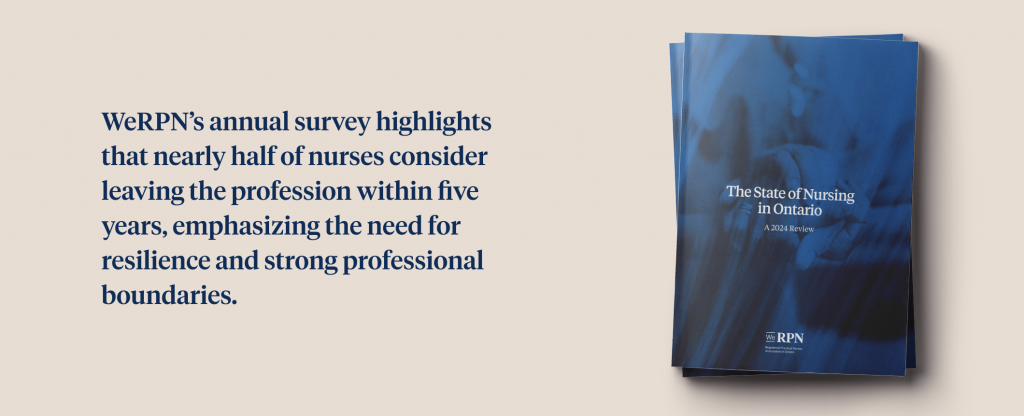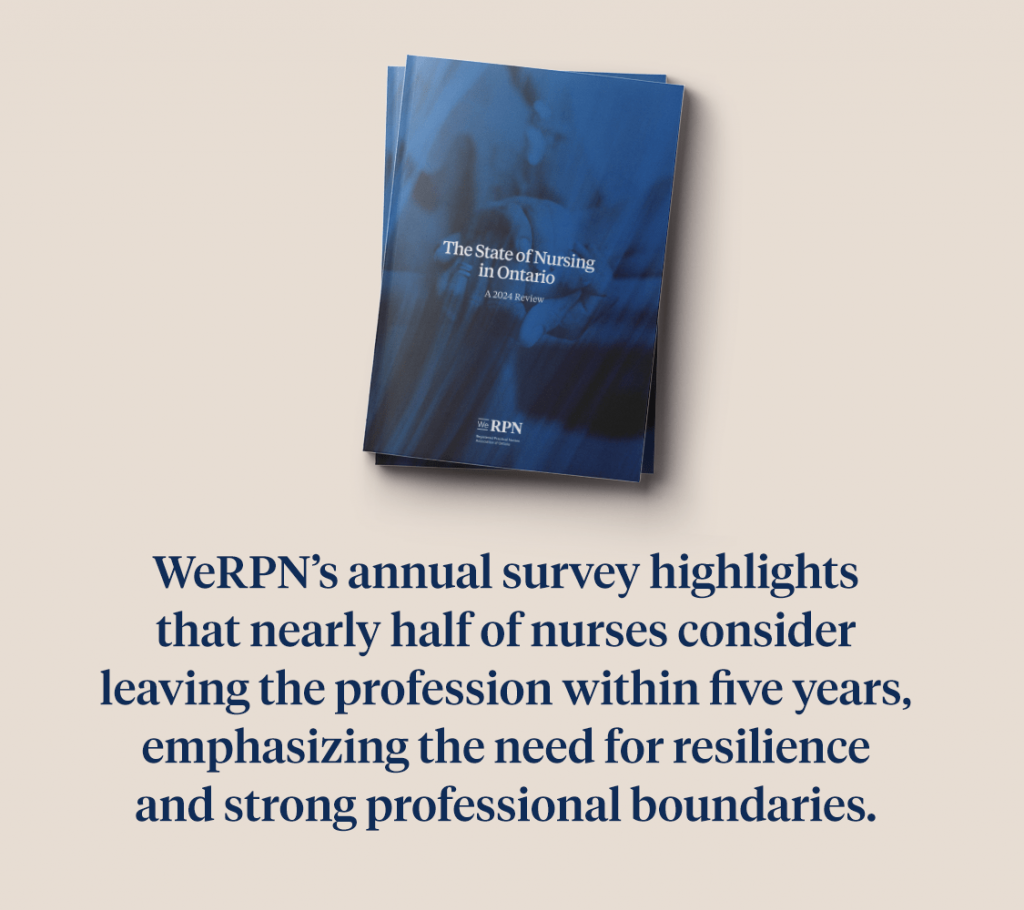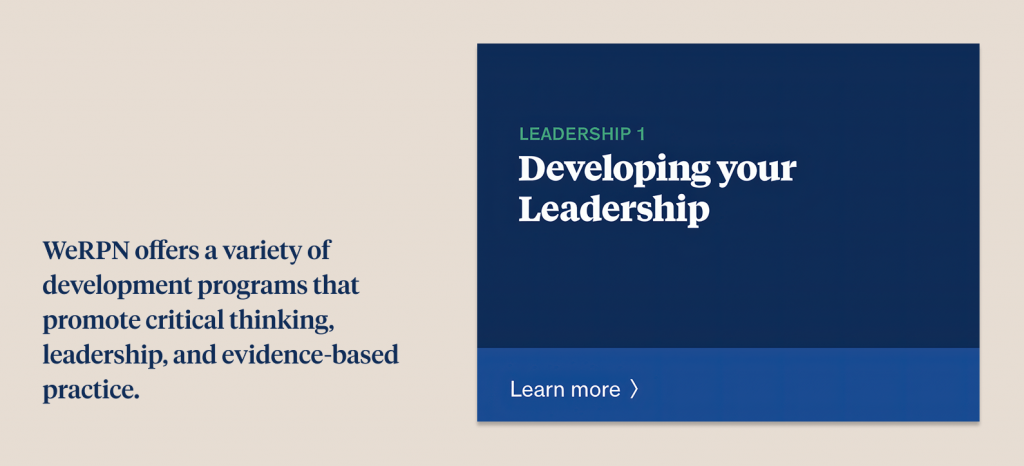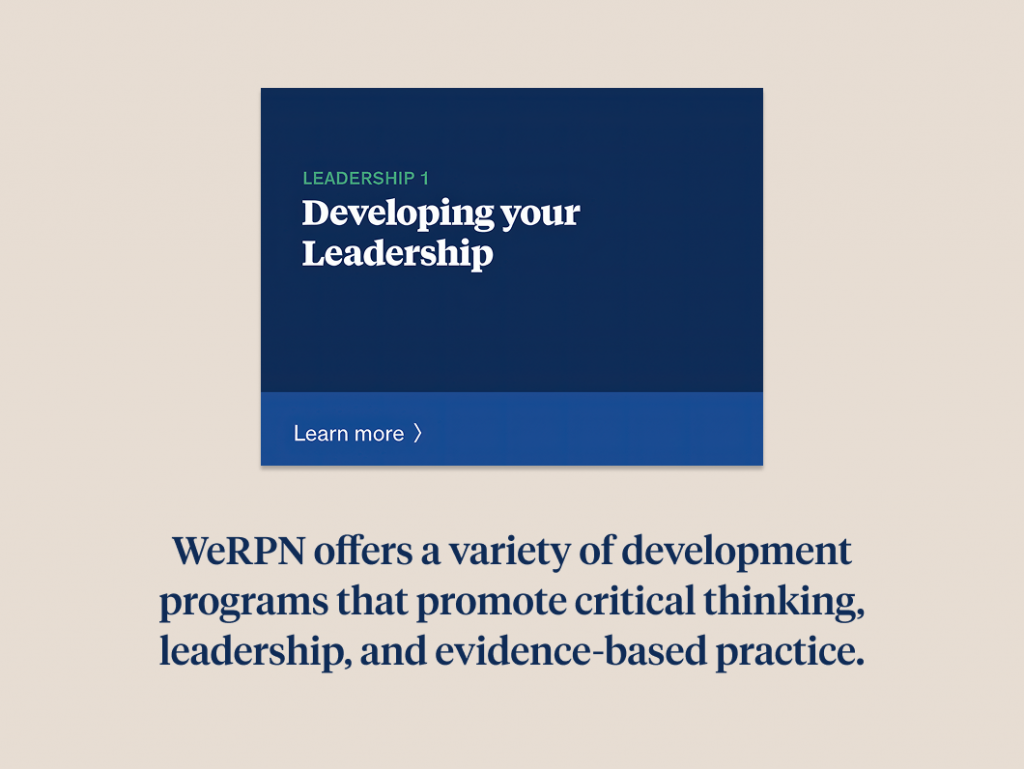

Beginning a career as a Registered Practical Nurse (RPN) in Ontario is both exciting and challenging. With nursing shortages and a complex healthcare landscape, new nurses enter environments shaped by the lingering effects of COVID-19 and systemic challenges. The College of Nurses of Ontario (CNO) reports over 60,000 practicing RPNs, many facing the emotional toll of ‘legacy trauma’ – the accumulated stress experienced by healthcare workers.
Building resilience is crucial for new nurses entering the profession. A recent study published in BMC Health Services Research highlights strategies such as fostering strong support networks, engaging in professional development, and utilizing workplace resources to manage stress effectively. Additionally, the Canadian Nurses Association emphasizes the importance of moral resilience – cultivating ethical awareness and confidence to navigate challenging situations without emotional exhaustion (source). Having a best friend at work, or a group of trusted colleagues who look out for each other each day, is also key to resilience. A strong sense of camaraderie provides emotional support, reduces feelings of isolation, and creates a workplace culture where nurses feel valued and understood, ultimately helping them manage the demands of their profession with greater confidence and well-being.
Leaning on experience, embracing change
Learning from experienced nurses is invaluable, but innovation often comes from those who question existing practices. The healthcare system evolves through fresh perspectives, yet navigating environments where burnout and compassion fatigue are prevalent can be difficult. WeRPN’s annual survey, The State of Nursing in Ontario: A 2024 Review, highlights that nearly half of nurses consider leaving the profession within five years, emphasizing the need for resilience and strong professional boundaries.Leaning on experience, embracing change
Learning from experienced nurses is invaluable, but innovation often comes from those who question existing practices. The healthcare system evolves through fresh perspectives, yet navigating environments where burnout and compassion fatigue are prevalent can be difficult. WeRPN’s annual survey, The State of Nursing in Ontario: A 2024 Review, highlights that nearly half of nurses consider leaving the profession within five years, emphasizing the need for resilience and strong professional boundaries.Building resilience and boundaries
Resilience isn’t about “toughing it out” but involves active strategies for coping with stress, maintaining work-life balance, and finding meaning in the profession. Research from BMC Health Services Research suggests that peer support programs, mentorship opportunities, and self-care practices play a significant role in helping nurses build resilience (source). The Canadian Nurses Association further emphasizes setting ethical boundaries, which can prevent moral distress and help sustain long-term career satisfaction. Establishing limits on emotional exposure, stepping back when necessary, and prioritizing personal recovery is essential to protect against burnout.
Critical thinking as an essential tool
New nurses must develop strong critical thinking skills to assess situations, adapt to changing conditions, and make informed decisions under pressure. Recognizing when to rely on institutional knowledge versus questioning practices that no longer serve patient care is crucial. WeRPN offers a variety of development programs that promote critical thinking, leadership, and evidence-based practice.
Moving forward with strength
Starting a nursing career today is challenging yet full of opportunities to shape healthcare’s future. By learning from experienced nurses while maintaining fresh perspectives, setting boundaries, building resilience, and honing critical thinking skills, new RPNs can navigate the profession with confidence and purpose. Your journey is just beginning – embrace it with curiosity and determination, knowing you are making a difference every day.



